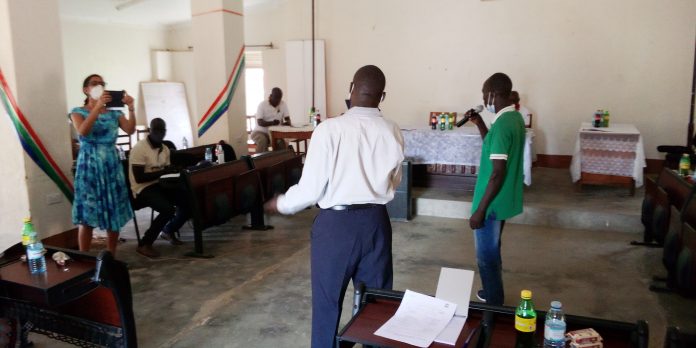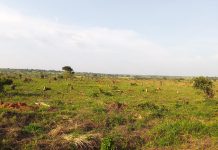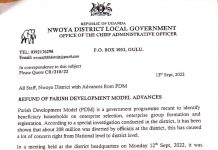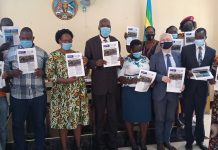
By: Ronald Debo, TBS Moyo
Five years since the influx of South Sudanese refugees into Uganda, relationship among the two communities remains erratic, social issues amongst environmental degradation have been at the pole position of their challenges. These however vacillate the intercommunal relationship among refugees and the host community.
Cross Border Network with support from the DW Akademie organized a community dialogue to strengthen peaceful co-existence between the refugees and host community.
In Moyo district of Northern Uganda, this dialogue was held at the district headquarter where representatives from both the refugees and host communities were invited.
Mr. Sula Godi Charles the Refugee Welfare Councilor from Palorinya refugee settlement in Uganda’s Obongi district was accompanied by representatives of the refugees from the settlement. Although there seems to be no brawl amongst the communities, the refugees listed series of souring issues that affects their co-existence. Among those issues are alleged mistreating of women in the nearby forest who go to collect firewood, harassment of refugees who would like to supplement their diets by going for fishing at the river area that was gazetted by the host community. In a bid to supplement the cuts on food aid, refugees also seek pieces of land for cultivation although they say has been faced with antagonism.
Although the discussion centered along defies facing the two communities, some host communities have expressed gratitude over refugees’ influx. Ms. Jesca Dradrimio, a member of the host community noted that stepped up social services that include health services and education, rehabilitation of feeder roads, construction of water sources and many other household development projects were implemented during the time of influx of the then asylum seekers.
Ms. Dradrimio however challenged the Office of the Prime Minister to regulate the rampant deforestation caused by the refugees and theft of properties by the refugees that are contributing to misunderstanding between the host community and the refugees.
Mawa Bashir, a retired civil servant, now the minister of security in Rendike Chiefdom was readily available during the dialogue. He called for dialogue meetings with the two communities who he said are people of the same origin.
Meanwhile in his position as the deputy settlement commandant of Palorinya refugee settlement, Alfred Adia revealed that the misunderstanding between the two communities is derived from pressure exerted on the available natural resources by the refugees who are the majority of the population in Obongi district that he promised to engage the two communities in dialogue for harmonious co-existence.
There total population of refugees in Palorinya refugee settlement is 126,000, triple, the number of the host community.
The community dialogue that was meant to bring together numerous representatives from both the host community and refugees to share their challenges brought together less than 20 people over the covid19 rules that does not permits mass gathering
Sheila Mysorekar, the project manager at DW Academie, commended the stakeholders of the dialogue for their participation and coming out with the issues and the recommendations. She pledged continues support of her organization to ensure continuity of the dialogue with aim to achieve the desired peaceful co-existence among refugees and the host community.




